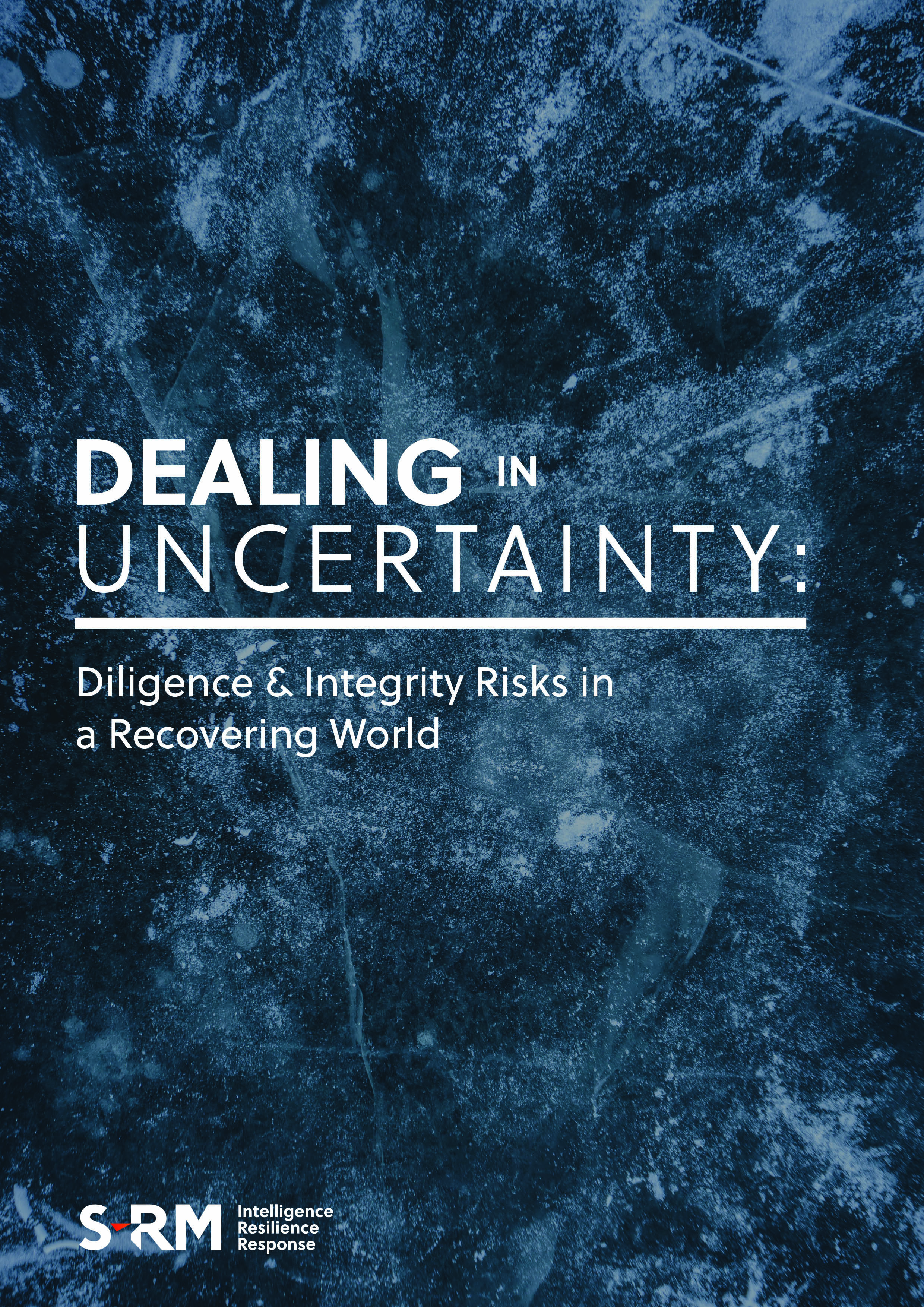The unprecedented healthcare and economic challenges brought on by the COVID-19 pandemic have seen governments globally resort to drastic measures in a bid to save both lives and livelihoods. They have thrown hundreds of billions of dollars at programmes whose initial aim was to support vital healthcare infrastructure, corporations and their employees.
Now, as thoughts turn to recovery, attention is shifting to fiscal measures that – if successful – will stimulate investment, growth and employment. All of this has occurred in less than six months. Whatever shape the recovery ultimately takes, it is inevitable that many individuals, companies, public bodies and government agencies will find themselves in financial distress, requiring debt restructuring or even facing bankruptcy.
It is an unfortunate reality that in times of uncertainty and fear, and when resources are stretched, opportunities for corrupt practices also increase. Vast amounts of money being dispersed at speed, combined with a global recession – the likes of which we have not seen for 100 years – is inevitably going to lead to a spike in fraud, corruption and cybercrime.
Against this backdrop, the challenges faced by investors, corporate decision-makers and legal counsel become more complex. At the same time, these practitioners can expect the level of scrutiny directed at them to only go one way. Whilst there are some aspects to this scrutiny that are not “new” (the avoidance – or detection – of corrupt and fraudulent practices is never a bad ambition to have!) there are a couple of additional factors to consider.
In the wake of COVID-19, it appears – and is widely hoped – that the momentum toward stakeholder capitalism will accelerate. How companies have balanced the interests of employees versus shareholders over recent months has been the subject of much media, and government, comment. It is hard to see this genie going back into the bottle any time soon.
In addition, with one eye on lessons learnt from previous crises, several questions are likely to arise: How did an investment target, a partner, a company or the links of its supply chain behave in a time of crisis? Were they too quick to take advantage of government schemes? Were they really in such distress? In whose interest were the decisions made? Did we, the taxpayers, bail them out? Reputational risk and the associated court of public opinion is going to matter, and its judgement, as we learnt in the years following the 2008 financial crisis, will hold significant weight.
Reputational risk and the associated court of public opinion is going to matter, and its judgement will hold significant weight.
As if these challenges were not enough, the way the world goes about its daily life has changed dramatically and businesses are having to adapt. How one conducts due diligence and investigates crime is no exception to this, and it is unlikely that the future of the intelligence and risk management industry will look identical to the past.
With this in mind, in our report we examine fraud, corruption and cybercrime risks through a new lens, one that has been coloured by the shifting public, corporate and regulatory priorities brought on not only by COVID-19, but with the advent of impassioned grassroots activism such as 2019’s climate change demonstrations and the Black Lives Matter movement. Together, these reflect part of the move from shareholder to stakeholder-driven capitalism, where private and public entities are held to account based on their values, and how well they uphold them.
Through a collection of distinct articles and interviews, our in-house teams explore these themes and more, alongside contributions and commentary from the likes of veteran Private Equity Lawyer and Coach Phil Sanderson; Carl Bowles, Head of Contentious Insolvency at Alvarez & Marsal; Joseph Laws, Head of M&A Insurance at AXA XL; seasoned investigator and S-RM Advisor, Richard Blaksley; Duncan Hames, Director of Policy at Transparency International; Blair Glencorse, Founder of Accountability Lab; and Henry Williams, Head of Investigations at Themis.
Global stakeholders, including governments, consumers and corporations, have been presented with an opportunity to refine and redefine their value system.
Undoubtedly, the world cannot go through events such as these without taking the time to think about what matters most to us. Global stakeholders, including governments, consumers and corporations, have been presented with an opportunity to refine and redefine their value system. How the commercial sector approaches due diligence is intrinsically linked to this shift in values. Corporations have an important part to play here, by scrutinising our own behaviour and holding our community to account, in addition to acting where we find it wanting. It is this ethos which drives our work here at S-RM, and it is with this principle in mind that we will continue to support our clients in navigating the fraud, corruption and cybercrime risks they face in the months and years to come.




 Email Martin
Email Martin





 @SRMInform
@SRMInform
 S-RM
S-RM
 hello@s-rminform.com
hello@s-rminform.com

